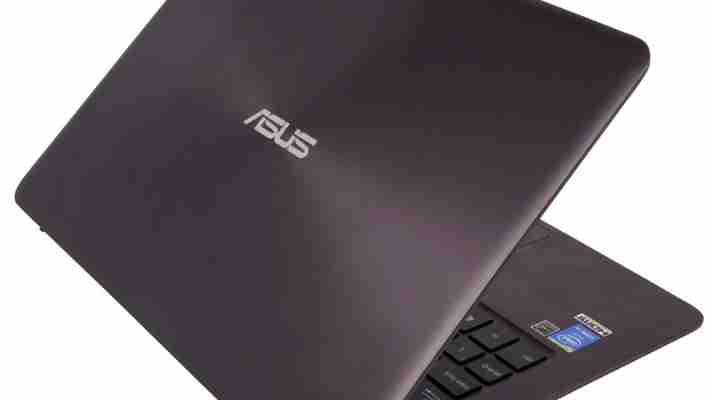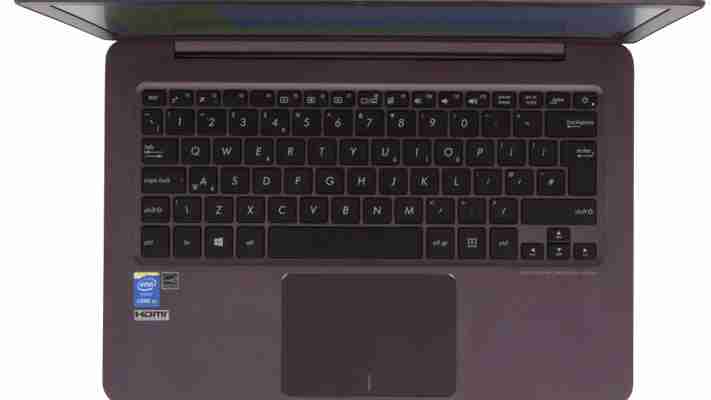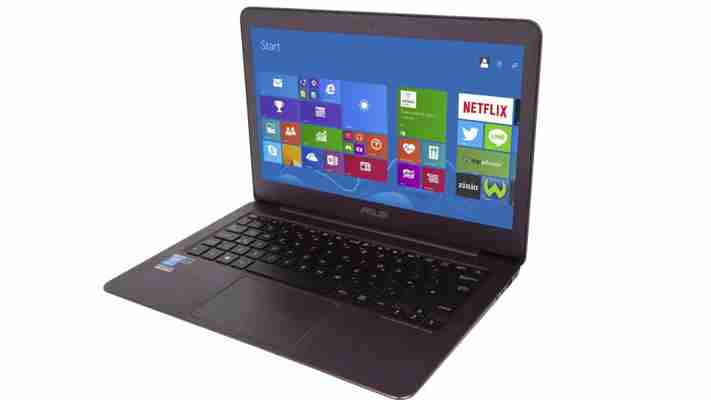Way back in 2015, intel's Core M mobile processors were revolutionary. Subverting our previous performance expectations of a budget ultraportable, the chip is still found in any MacBook launched since early 2015.
Contrary to popular belief, Apple wasn't the first to market, a trickle of Windows laptops beat the tech giant to the punch. Now that Core M devices have been around for a while now, they can even be found in those cheap sub- £500 ultraportable alternatives. This is Asus' slim ZenBook UX305, which can now be picked up for £500 - more than half the price of most MacBooks - should you manage to find one.
The gorgeously thin laptop takes full advantage of the low power consumption and undemanding thermal footprint of the 0.8GHz Intel Core M-5Y10c processor buried inside. While 800MHz may sound pathetically slow, it's worth keeping in mind that it can actually Turbo Boost to an impressive 2GHz should thermal conditions allow. If we didn't already know what processor was inside the laptop, our first guess would have been a Core i3, considering its performance.

The advantages of such a low-power processor are paramount and definitely very clear. Firstly, the laptop is pretty much completely silent no matter how heavy a load it's under, made thanks to its fanless design. As a result of this, it's nice and thin at only 12.3mm and extremely light, yet again thanks to the lack of a heavy cooling system. The stunningly thin and compact design sadly means you're left with just a single micro HDMI output, SD card reader and no Ethernet port. Asus haven't scrimped when it comes to USB ports, with a total of 3 USB3 ports and a 3.5mm audio jack, which is a heck of a lot more than you’ll get in the new MacBook for instance. There is a workaround for the lack of wired connectivity, though, with a supplied USB 10/100 Ethernet adapter in the box for when you're able to connect to a wired network.
Despite this low price, at first glance you can clearly see Asus hasn't skimped too much on build quality and overall design. The sleek brushed metal chassis certainly looks the part and while it does pick up greasy fingerprints pretty easily and has a little bit of flex to it, it definitely doesn't feel flimsy by any stretch of the imagination. We're more than happy to pick it up and throw it into a bag without worrying all that much about it getting damaged during our time spent with it. Its weight is so small that we barely even noticed it even in a small bag, so it's perfect to take around with you, even if you think might not need it. It's this effortless practicality that so many laptops miss and the Asus Zenbook UX305 manages pretty much flawlessly.

The keyboard is incredibly comfortable to use, even during lengthy typing sessions, with grippy island keys leaving you plenty of space for your fingers. There wasn't any noticeable issues such as missed keystrokes and we were also able to type perfectly consistently and quickly whether on the bus, sitting at work or lounging about on the sofa. The only real downside we noticed is an unfortunate lack of backlighting, which would make typing late into the night significantly easier. Obviously, with a laptop of this price we wouldn't exactly expect it , but we still miss it nonetheless.
The touchpad is relatively good, too, and is massively improved by Asus' excellent Gesture Control software. You get the option to switch various two- and three-fingered gestures on and off using this software, and you can also deactivate the often tiresome Windows 8 gestures that activate if you accidentally swipe your finger from the edge of the touchpad. A particular gesture of note is the three-fingered down swipe gesture that shows the desktop and the three-fingered left and right gestures that take you back and forward in the browser. This brings the UX305 in line with the Apple MacBook Air, which is equally easy to use thanks to similar gesture controls with OS X.












